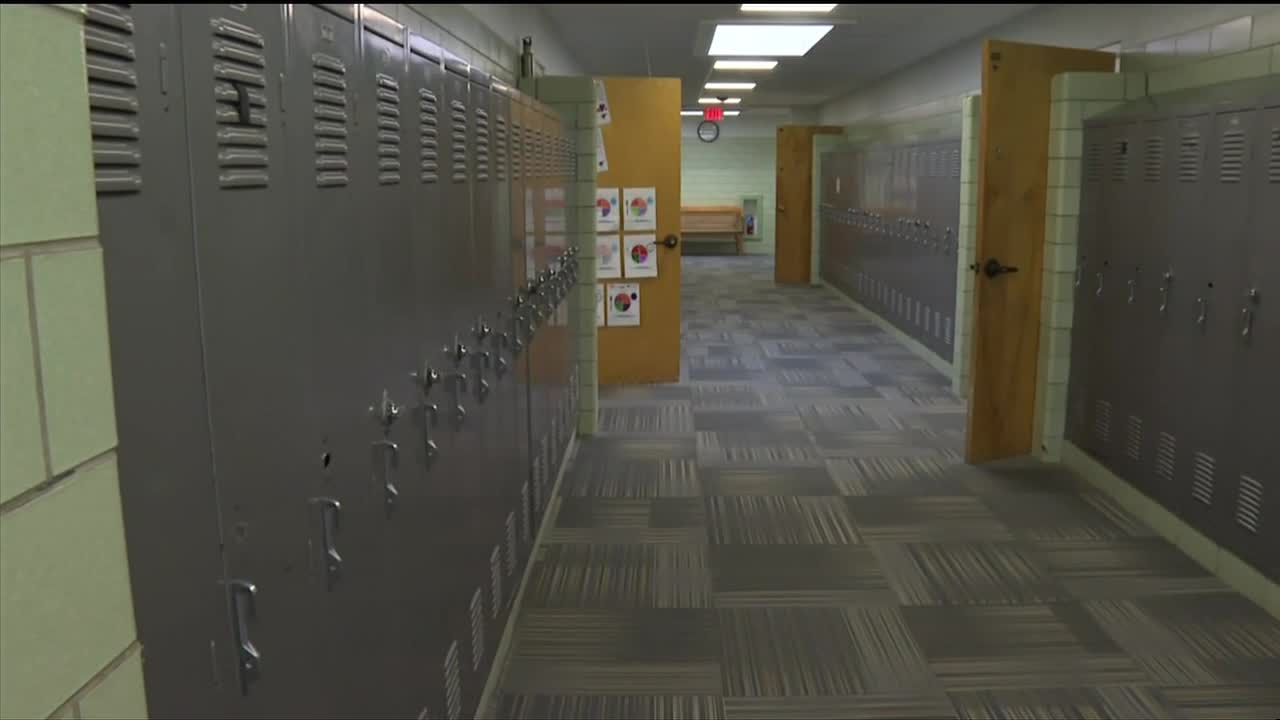SOUTHERN COLORADO — School districts across the country are dealing with teacher shortages, especially in rural communities.
For Campo School District R6, it's hard to attract and retain teachers because of some of the challenges
"I teach two subjects, and that in itself is a lot of prep. A majority of subjects have to be combined class groups. I have ninth-grade English so I have 9th-12th in one classroom, kind of like a one-room schoolhouse situation," said Sabra Lovejoy, Campo School District R6.
Sabra is a single mother of two and says economically it is rough because of low pay scales.
"Just because the cost of living as far as buying a home or property is lower here, the cost of living as far as groceries, gasoline, internet access, and cellphones is higher," said Sabra.
Her son Malcolm along with two other rural high school students and professors hope to an estimated 6,000 teachers with a new bill. The legislation would raise the minimum salary for rural teachers to $40,000 a year, and cost the state an estimated $35 million a year to supplement them.
"My mom has been my teacher since sixth grade so I've been able to experience not only from the perspective of a student but as a child of a rural teacher," said Malcolm. "I have a single mother and our household income is based on what she makes at the school. I think the starting salary in Campo is about $27,000, and truthfully it can be really hard to live on. I think a lot of the time people think living in rural communities is cheaper than urban environments, but I would argue that is not true."
While he believes rural education has significant advantages, it can also hinder opportunities.
"Such as dual credit classes, AP classes, and even having a math teacher. Some of those things can be really hard to find," said Malcolm.
He hasn't had a math teacher since he was a freshman.
"I think for a lot of students, it has really set us back in math. It is really a shame because those first few years of high school math are really the building blocks for high school math and higher education," said Malcolm. "I was really behind in math, and I had to work and teach myself math. It is hard for students, especially for those who aren't willing to put extra effort to learn a subject themselves."
"It is hard to hire. We lost seven teachers last year and it freaked all of the students out because we didn't know what we would get staff-wise. We know that the pay is not great, especially being rural, we can't get all of the funding that the larger schools can get," said Elizabeth Petersen, Elbert High School student.
Both students hope the new legislation helps bring support and interest to their rural communities.
"I think it is a stepping stone, I think a lot of people can agree with me that $40,000 is still not a whole lot of money, especially with some of the education some of these teachers are coming in with, but it is at least something. We are beginning to think about it, we are beginning to make it an actual salary," said Malcolm.
"I think we will get some of the bigger educational opportunities that the bigger schools are because we are getting better teachers. We have good teachers, but it is also about how they pay for their own continuing education to further develop our own education when they aren't getting paid enough," said Petersen. "This is something that we need, no matter where you come from."
Data from the Colorado Department of Education shows the average teacher salary is $58,000, and $40,000 in rural communities. In places like Campo, they start off at around $27,000.
"What we call our remote, mountain areas, and resort remote which means they are backed up against ski or resort areas which can fuel our Colorado economy but they can cost a lot to live in. The teacher salary may not be conducive to what the housing cost might be," said Colleen O'Neil, Colorado Department of Education.
The department has a number of initiatives aimed at helping rural teachers.
"There are a few state initiatives that run out of the Colorado Department of Education or the Department of Higher Education. Most of them are implemented in our rural communities and they are focused on getting fellowship opportunities, grants, and money in your pocket to be a rural educator. It's focused on getting more people from our educator preparation programs out into our rural areas to experience what it would be like to live there," said O'Neil.




